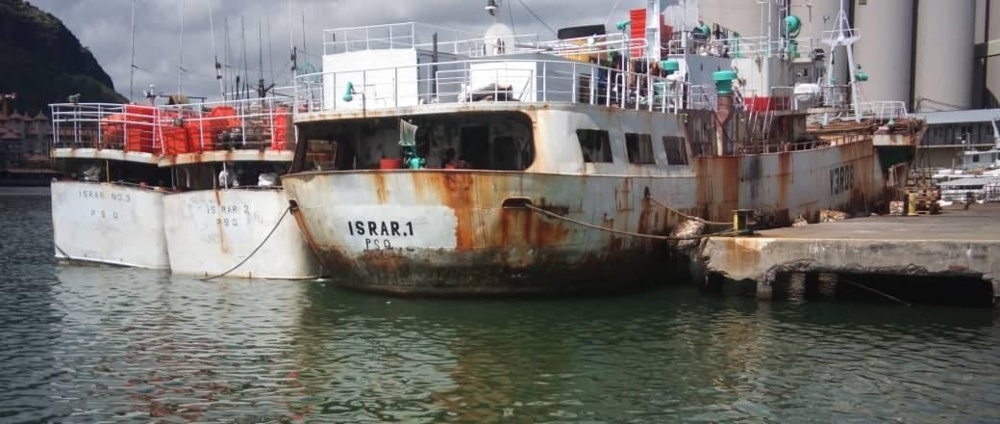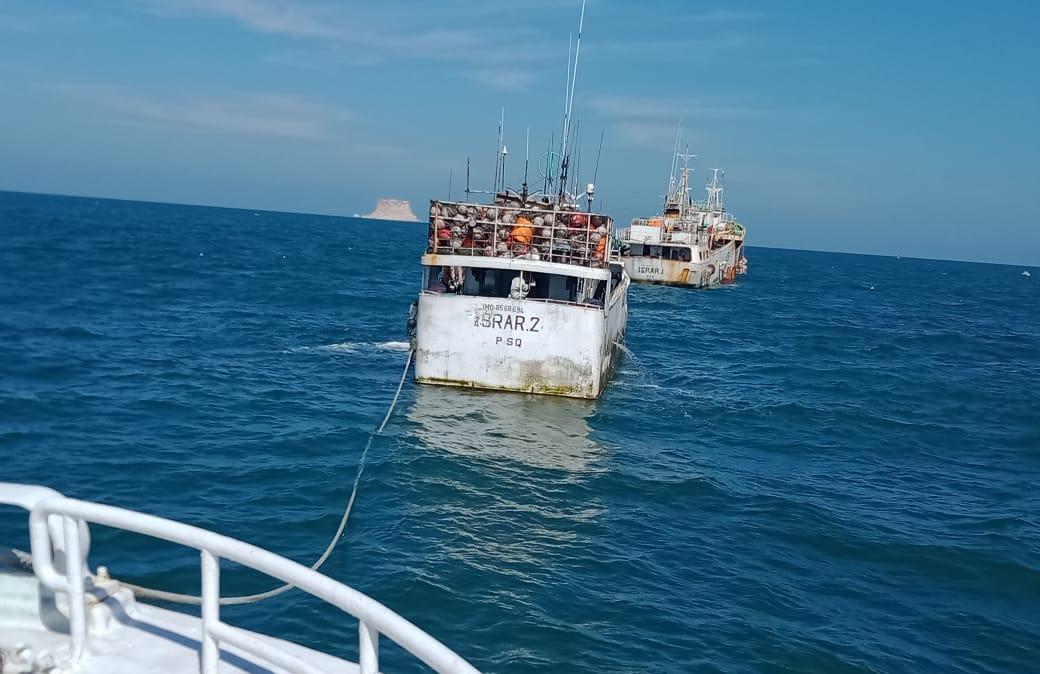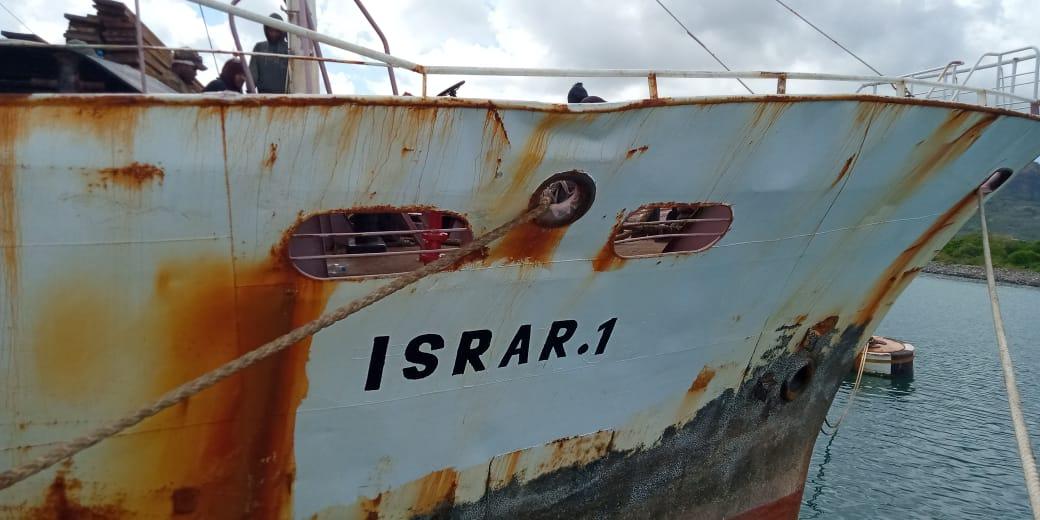
Another blow struck against illegal fishing
The Government of Oman has removed the notorious ISRAR fleet from their registry of fishing vessels. This positive step follows years of investigation into the fleet by EJF, but for a truly sustainable ocean, we need systemic transparency in global fisheries.
Illegal fishing is driving ocean ecosystems to breaking point. It is responsible for shocking human rights abuses and ecosystem destruction on an industrial scale, taking millions of tonnes of fish out of the ocean with devastating implications for coastal communities, our ocean and the climate.
That’s why it’s excellent news that Oman has recently decided to remove a fleet of vessels we documented fishing illegally from its registry of fishing vessels, stating after an investigation by Omani officials that "the documentation submitted by owners about the previous history of the vessels was not satisfactory, together with all other evidence collected by all the fisheries departments involved".
The fleet did everything it could to avoid detection, including switching the flags it was sailing under (and sailing under no flag at all for some time, which is itself illegal), changing vessel IDs while at sea, and making secretive transfers of crew, supplies and fish out on the ocean, a practice known as trans-shipment.
We only caught them due to a fortuitous observation of their movement patterns, which EJF’s investigators noticed appeared suspicious before launching a painstaking investigation into the fleet. This involved working with authorities from eight nations across multiple continents, fisheries management organisations, the European Commission, INTERPOL and even crew members from the fleet in Mauritius.
Ultimately the investigation was successful: the ISRAR fleet was blacklisted by fisheries management authorities, meaning it would be unable to sell its catch, dropped by its insurers, and now, in another blow against the vessels plundering our ocean with impunity, delisted by Oman.
This means the vessels will now have to look elsewhere for their flag and permits. Oman’s government should be applauded for taking a stand against illegal fishing, and other governments must not let this fleet register with them to recommence their destruction of our precious ocean.
We are not going to let the ISRAR fleet off the hook, and EJF investigators are continuing to track the vessels as they move around the globe, sharing intelligence with the relevant authorities to keep the pressure on this illegal fleet. However, while this is a major step forward, it is still just three fishing vessels, and ending illegal fishing globally through multi-year investigations like this would be impossible.
That’s why we urgently need a systemic shift towards transparency in fisheries everywhere. Once we know who is fishing where, for what, and how they are doing so, authorities can begin to crack down on illegal fishing in earnest, protecting people, wildlife and our ocean.
This transparency would be both transformative and relatively straightforward to achieve. Think, for example, of vehicle registration plates. It would be ludicrous for it to be possible to commit a crime using a car and then simply change the registration plate on the spot to avoid detection, but this is exactly what happened with the ISRAR fleet’s vessel IDs.
Bringing fisheries out of the shadows does not require new, sophisticated technology, or unrealistic expense. It can be achieved by any country through a combination of public data-sharing, enforcement of sustainable fisheries laws, and the use of existing technology to understand, map and disclose supply chains.
We can make global fisheries sustainable. We can end the devastation of ocean ecosystems, so fundamental to life on Earth, which the pillaging of our ocean is causing. We can put a stop to the horrific human rights abuses, human trafficking, and food insecurity which are intrinsically driven by illegal fishing and overfishing. EJF’s ten principles for transparency are a starting point, with cost-effective, practical solutions to the opacity of fisheries around the world. We urge all governments to adopt them now.
SIGN UP FOR OUR EMAILS AND STAY UP TO DATE WITH EJF

